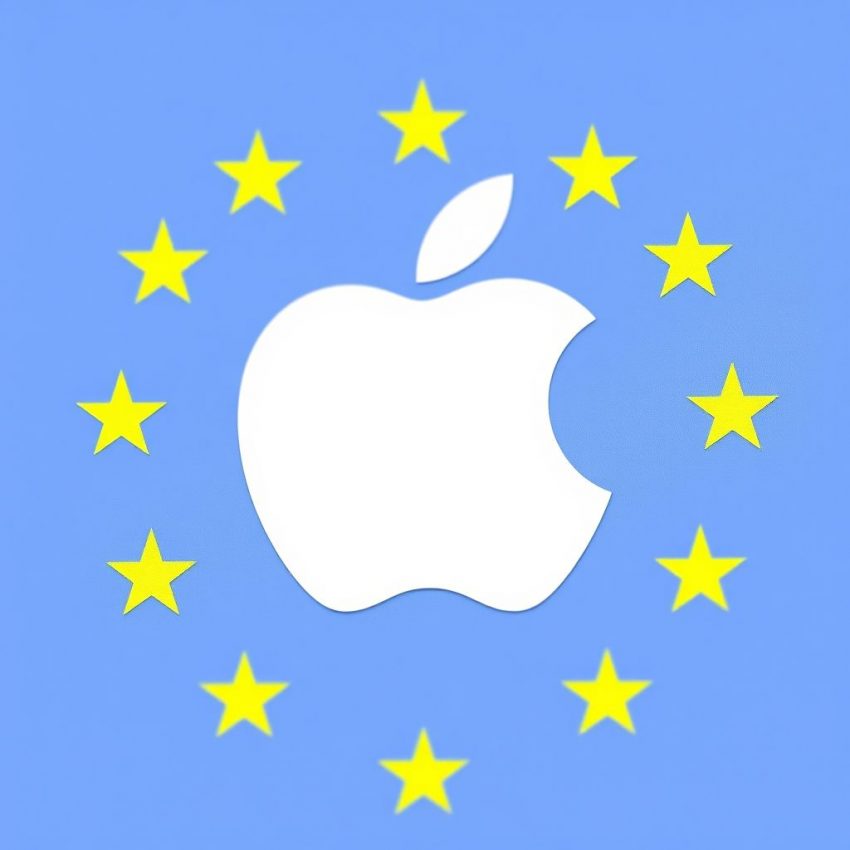Apple and Meta Face Massive Fines Under EU's Digital Markets Act
The European Commission has dropped the hammer on Big Tech, slapping both Apple and Meta with hefty fines for breaching the EU's Digital Markets Act (DMA). This landmark legislation, designed to rein in the power of "gatekeepers" – companies with significant market control – is now showing its teeth, signaling a new era of tech regulation.
Both companies face hundreds of millions of euros in penalties, a clear message that the EU is serious about enforcing its rules. While the specific infringements differ, the underlying theme remains the same: leveraging dominant market positions to stifle competition and limit consumer choice.
Apple's iMessage Isolation:
Apple's fine centers around its refusal to allow interoperability between iMessage and other messaging services. The DMA mandates that gatekeepers must allow their messaging platforms to work seamlessly with competitors. The EU argues that Apple's walled-garden approach to iMessage limits consumer choice and gives Apple an unfair advantage, effectively locking users into its ecosystem. This lack of interoperability has long been a point of contention, with critics arguing it stifles innovation and competition in the messaging market.
Meta's Facebook Marketplace Bundling:
Meta's fine stems from its tying of its online classifieds service, Facebook Marketplace, to its dominant social network, Facebook. The DMA prohibits gatekeepers from bundling services in a way that gives them an unfair advantage over rivals. The Commission argues that this bundling gives Facebook Marketplace an artificial boost, making it difficult for competing classifieds platforms to gain traction. This practice, according to the EU, distorts competition and limits consumer choice.
The Bigger Picture:
These fines are more than just financial penalties; they represent a significant shift in the relationship between Big Tech and regulators. The DMA is a powerful tool designed to dismantle anti-competitive practices and promote a fairer digital landscape. These initial enforcements serve as a stark warning to other tech giants: comply or face the consequences.
What Happens Next?
Both Apple and Meta have the option to appeal the decisions. However, the Commission's strong stance suggests they have a solid legal basis for their actions. The fines are likely just the beginning of a broader effort to reshape the digital market. We can expect to see further investigations and potential enforcement actions against other gatekeepers in the coming months.
The Impact on Consumers:
Ultimately, the DMA aims to benefit consumers by fostering competition and innovation. Breaking down walled gardens and preventing unfair bundling practices should lead to more choice, better services, and potentially lower prices. While the road to a truly competitive digital market is long, these initial fines mark a crucial step in the right direction.
Key Takeaways:
- The EU is serious about enforcing the DMA.
- Gatekeepers must comply with the rules or face substantial fines.
- These actions could reshape the digital landscape and benefit consumers.
- This is just the beginning of a larger regulatory push.
The coming months will be crucial in observing how these companies respond and how the DMA continues to shape the future of the digital marketplace. One thing is certain: the era of unchecked Big Tech dominance is over.
Don’t miss out on this exclusive deal, specially curated for our readers! Kickstart Your Fitness Journey with the Peloton Treadmill
This page includes affiliate links. If you make a qualifying purchase through these links, I may earn a commission at no extra cost to you. For more details, please refer to the disclaimer page. disclaimer page.

